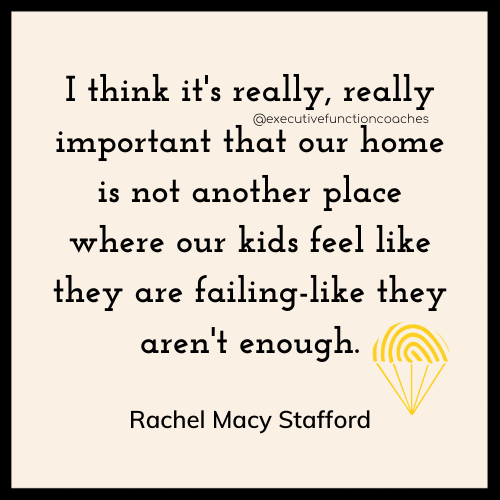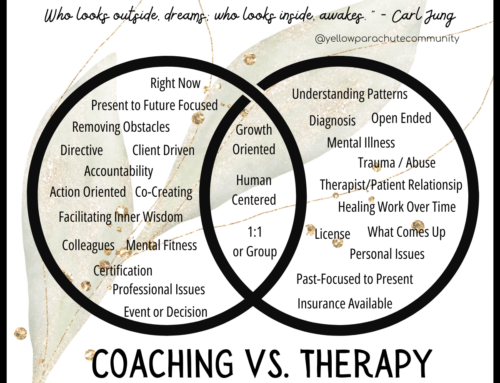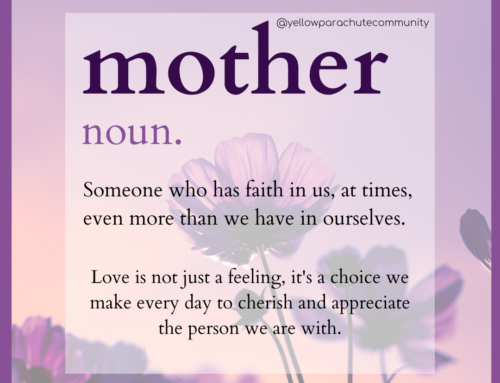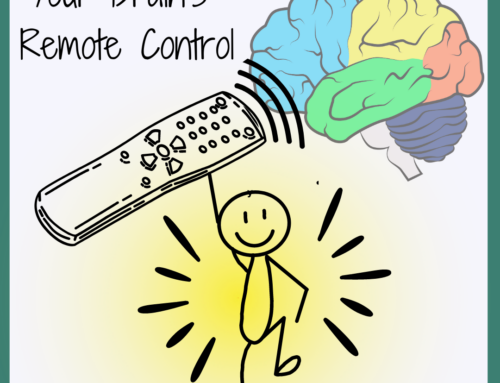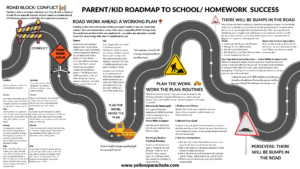I tend to shy away from “how to parent” posts because I recognize parenting as such a personal choice. But after 20+ years of coaching, and 17+ years of parenting neurodiverse humans, I can offer some guidelines for success.
Five steps to help influence your child to make better life choices when they mess up:
1. Stop the Knee Jerk Reaction
First, when *the thing* happens, recognize and acknowledge your own feelings of panic, despair, powerlessness, frustration, or disappointment. Avoid judging yourself or your child. Blaming, yelling, hovering, distancing or becoming very controlling will only cause damage to your relationship. You also can’t think clearly in the flood of emotion. So tap the brakes!
2. Observe the Big Picture
Take time to think about what’s happening and your potential, unintentional, contribution to any negative patterns in your relationship. Seeing the big picture allows you to think more effectively about the best way to guide and lead— not control (kids are control sensors!) — your adolescent. Guiding and leading requires you to change your behaviors as a parent instead of trying to get your adolescent to change theirs. Sorry! 😣 Wink.
Ask yourself these questions:
- When did these poor behaviors begin?
- Were there any triggers?
- Are there any ways you or your spouse contribute to the problem?
- Have you felt overly responsible for the choices your child makes?
- Do you believe that it’s your job to get your kids to make all the right choices?
- If so, have you been over-functioning for your child by babying her and contributing to her irresponsible ways?
- Have you provided too many rules or too few?
- Have you been inconsistent in your follow through?
- Is your child functioning in reaction to you, for some reason, instead of functioning for him or herself?
3. Understand How to Take Charge
Take charge rather than take control. Again, you do not have control over all of your children’s choices, but you can help influence their decisions. This is the point in time where I reference “non-negotiables.” If my teen insists on returning at three in the morning, I cannot lock him in his room every night ( though I’d love to). I can’t control him without hurting our relationship. But I can (and do) tell him this: “If you return after your curfew, there will be a consequence. You won’t be able to use the car or go out with your friends again this weekend.”
I maintain strong, clear boundaries in a loving and connective and matter of fact way. It helps my kids to hear, over and over again, that I’m on their side. I do indulge them in the “why,” and I make sure we are clear in why I am doing what I’m doing. This will be a personal preference, whether you share your “why” with them. My why is because I can’t fall asleep at night until I know they are all safe back at home!
4. Connect With What’s Working
Recognize that some kids will have a difficult journey at different times in their lives. My family has been there. It’s really hard! But no matter what, try to hang in there the best you can. Connect with what is working in your relationship and in your student’s strengths. You can keep your expectations in place even though your teen is constantly breaking them. This is practice. And it might feel like limbo, but it WILL change.
What ultimately counts are small successes; hang onto your relationship so you can celebrate those successes. They build momentum for what comes next.
There is a good chance that your child may throw many opportunities away despite your good influence. Ultimately, you will need to grieve the losses and the disappointments of your own hopes and dreams. But hang in with your child and continue to move forward together. To quote James Lehman again, “Parent the child you have—not the child you wish you had.”
5. Decide What’s Most Important
Creating my personal vision as a parent is the most helpful parenting tool I’ve found. My personal vision serves as a guiding principle NO MATTER WHAT HAPPENS with my kids. It is my lighthouse when the water is rough; I lean into my personal vision as something I can always control. My suggestion for you, as I close, is to think about the times when you feel you’re best at parenting and why. What are the things you control in those parenting bests? You have the start of your vision! If you are wondering where to begin, think about the type of environment you want to come home to after a hard or tiring day. Our kids with ADHD tend to have a greater number of negative interactions than non-ADHDers. So that’s where I started: I want our home and my interactions (as much as possible) to be positive.
If you need more support in this journey, a Parent Coach may be an excellent resource for you. Reach out to Jenny McKeand to get you started today!
– Adapted from an article by Debbie Pincus, MS LMHC

